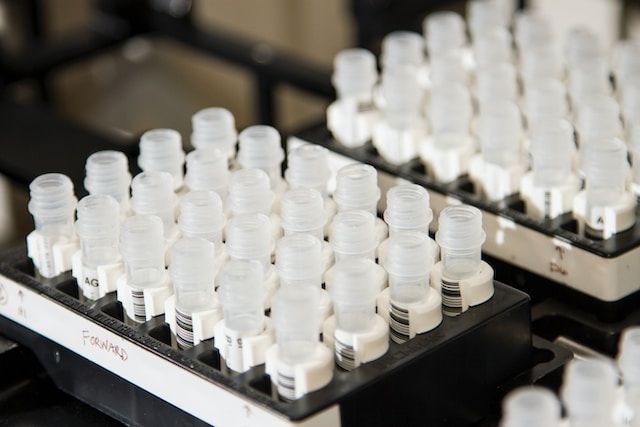In a first-of-its-kind study, researchers using wastewater surveillance over conventional indicators have predicted the start of the annual respiratory syncytial virus (RSV) season 12 days early, providing more lead time for hospital preparedness and the timely initiation of RSV prevention therapy provided by the province for at risk-infants and young children.
Published in Frontiers in Public Health the study is the first to describe the relationship between wastewater measurements and clinical data for RSV and to use near real-time wastewater measurements to accurately identify the start of the RSV season.
Working in close collaboration with CHEO Research Institute (RI) and McMaster’s Children’s Hospital, Dr. Robert Delatolla’s lab at the University of Ottawa led the study during the early and intense 2022-2023 RSV season, comparing wastewater surveillance signals of RSV to clinical surveillance signals, which rely upon RSV clinical test positivity and hospitalizations. Researchers compared city-wide wastewater samples and pediatric RSV clinical test positivity and hospitalization trends in Ottawa and Hamilton between Aug. 1, 2022, and March 5, 2023. Twenty-four-hour composite wastewater samples were collected daily and five days a week at the wastewater treatment facilities in both cities. Quantifying RSV in municipal wastewater forecasted a 12- day lead time in the pediatric RSV surge and an earlier start day to the RSV season compared to the provincial start date in both cities. Interestingly, each city had varying start dates indicating geographical and regional variations in incidence of RSV between the cities.
“This study is an example of how wastewater-based surveillance, in this case for RSV, can be used to more effectively service the health of our community.” – Dr. Robert Delatolla, Professor of Civil Engineering and Director of the CoVaRR-Net Wastewater Surveillance Research Group
“When faced with potential surging pediatric volumes, any extra lead time helps hospitals to prepare, get public health messaging out, and confirm that necessary RSV prevention and acute care resources have been allocated effectively,” said Dr. Nisha Thampi, the study’s senior author who is an infectious disease specialist and researcher at CHEO. “This study suggests that wastewater-based surveillance for RSV can provide a population-level early warning signal of RSV in the community, which has the potential to reduce the burden of RSV in our youngest population and our pediatric acute care system.”
“Although there are currently over 4,600 locations around the world, and over 200 locations across Canada, that are being tested for wastewater-based surveillance of disease there remains few examples of the actioning of the wastewater data. This study is an example of how wastewater-based surveillance, in this case for RSV, can be used to more effectively service the health of our community, ” said Dr. Delatolla, study lead and full professor in the Department of Civil Engineering at uOttawa, and Director of the CoVaRR-Net Wastewater Surveillance Research Group.
“When faced with potential surging pediatric volumes, any extra lead time helps hospitals to prepare, get public health messaging out.” – Dr. Nisha Thampi, Associate Professor, Faculty of Medicine
The Delatolla Lab continues to collaborate with Dr. Thampi, an associate professor at uOttawa’s Faculty of Medicine, and is expanding this research to more cities in Ontario.
Wastewater surveillance remains a crucial marker of pandemic spread in communities around the world. Since near the start of the pandemic the CHEO RI has collaborated with the Delatolla Lab, which has been a pioneer in wastewater surveillance, including the first in Canada to implement a SARS CoV2 (COVID-19) wastewater surveillance program in 2020. Dr. Delatolla and his Lab continue to provide daily viral RNA measurements to Ottawa Public Health, which are integrated into its respiratory illness reports.









